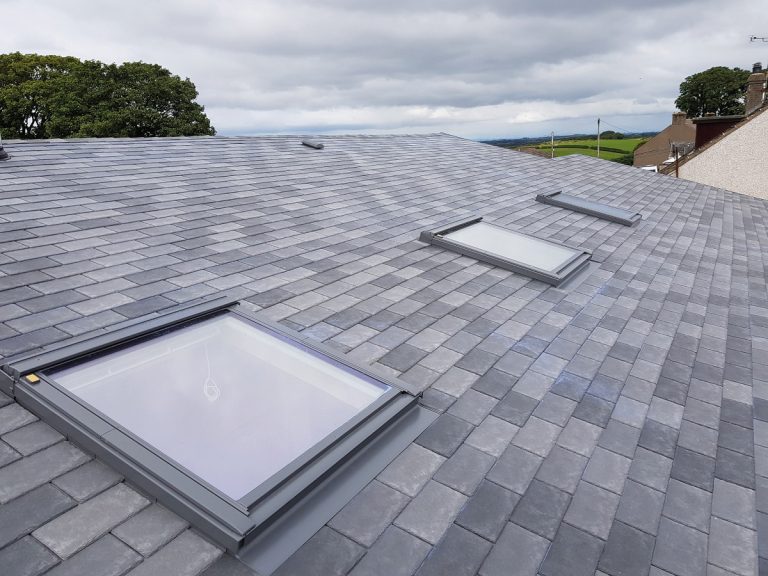NaCSBA member Tapco Roofing Products has been supplying roofing materials for self builds and renovations for over 10 years, and in this time it has learnt a lot about helping its clients secure the right contractor for their project.
Here’s Tapco’s tips for selecting a contractor – which work just as well as a guide to securing a range of contractors for your build, and your starting point should always be trusted members of the National Custom and Self Build Association.
Tips for selecting a contractor
Sourcing contractors
Before you hit the internet, there are a few local sources you should consider for finding contractors, and you should aim to talk to a few different ones to help you make your assessment.
Local community: Ask around with friends or local people in the neighbourhood, especially if they’ve recently completed a project that you feel looks good. Just make sure you’re sensible and safe if you’re knocking on doors.
Material suppliers: Roofing materials distributors like Tapco Roofing will know many good – and bad – contractors locally. In particular they’re usually happy to pass on tips about reliability and which are prompt payers, and many will have notice boards for local contractors.
Local officials: Strike up a relationship with a local building control officer in your area, as they will know which firms go above and beyond and comply with building regulations from the very start.
Online resources: As well as NaCSBA’s members, there are many trade sites for finding contractors, such as Checkatrade, MyBuilder etc that use reviews for work done. Ditto, Forums and Facebook groups, will often lead you to local people who have built who may be able to share their leads. But always do your research beyond this.
Due diligence
Essentially this is the research that will help you ensure your money is well spent. Try to choose a reputable firm, ideally with a few years in the business. Remember the company must be trading if you’re to rely on the warranty it gives you for its work, and a trusted, long-operating contractor will be a better bet than a start up.
Not all of them will have a website, but they may well be on social media such as Facebook, and this can indicate how professional they are. You should also check to see if they are registered on Companies House, which may have reports and any former bankruptcies.
Again, chatting to distributors and building regs officials will also help you make your decision. As well as references from clients, consider asking for a trade reference from the supplier where they buy their materials from.
Get a shortlist and then consider the following:
- Ask for references with numbers for similar kinds of work (such as whole house or re-roofs) and call a few of these. You could also ask to see the work.
- Check they have worker’s compensation and liability insurance. On employment you must obtain the certificates of insurance for both Employee Liability and Public Liability.
- Employee Liability must cover all employees and sub-contractors, if used. No certificates, no contract – otherwise you will be liable should an accident occur.
The Proposal
- Get the exact materials to be used defined by the manufacturer in the proposal – this can be very important if planning stipulates a material or colour.
- Use a good contract, such as one from the Joint Contracts Tribunal (JCT).
- Establish the timeline for the job, with a guideline for a start and finish date (weather permitting).
- If the roof is a replacement, the contract should list the contractor as responsible for any damage within the property once the work has started.
- Review the warranty you will be given for the installation on completion. This should be robust for the first two years of the warranty, rather than an excessively long cover period. Tapco points out that most installation problems will crop up in first calendar year as the roof goes through each season.
- Establish who obtains and pays for building control permission – on a self build your project manager will have a good relationship with building control and a catch up chat on each site visit is invaluable.
- Define the payment terms completely so that there are no nasty surprises when payment is due.
- If the contractor asks for payment up-front, Tapco recommends preparing a schedule of part-payments to be agreed as part of the contract. Never pay the entire amount all at once, and only pay the next instalment once you are happy with the work.
Keeping it smooth
Communication can break down on any project, so try to maintain good terms with your contractor at all times. Be firm but fair and listen to what they have to say as difficulties often arise, such as material delays or increases.
NaCSBA members all sign up to its Code of Practice which can be a useful first level of arbitration if things do go wrong.
Politely encourage your contractor to tidy up the project daily as they leave, as this makes the process much easier on everyone. Remember that ladders and materials must be secured daily.
Inspiration from Tapco Roofing Products








